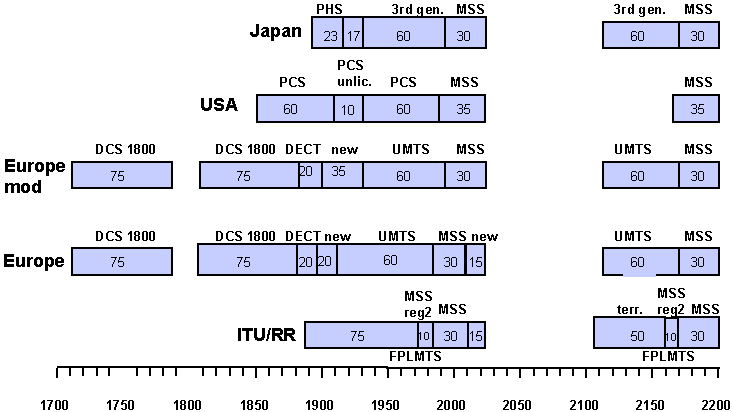
 |
JPL's Wireless Communication Reference WebsiteChapter: Network Concepts and Standards |
The term frequency assignment is also used for the action of an operator assigning a channel to a particular user. For instance in dynamic frequency assignment (DCA) the cellular operator optimizes the resources available in all cells to optimally adapt to the changing needs from its subscribers. Confusingly, DCA is often called dynamic frequency allocation.
